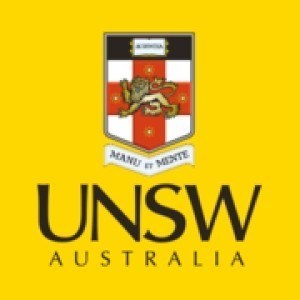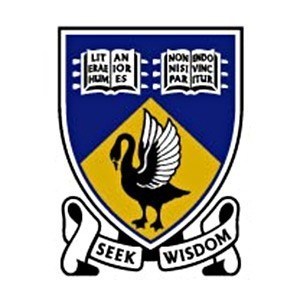Photos of university / #ouranu
The Master of Arts in Translation (Advanced) at the Australian National University offers a comprehensive and in-depth academic program designed for students who wish to develop advanced translation skills and specialize in various linguistic and cultural contexts. This program is ideal for aspiring professional translators seeking to enhance their expertise, as well as for language professionals aiming to expand their skillset in a highly competitive global market. The course encompasses a wide range of modules that focus on high-level translation techniques, intercultural communication, and the ethical considerations involved in translation practice. Students will have the opportunity to work with authentic translation materials from diverse fields such as legal, medical, technical, and literary texts, ensuring they gain practical experience applicable to professional environments. The program emphasizes precise language analysis, advanced language proficiency, and specialized knowledge in targeted subject areas, enabling graduates to produce accurate, culturally sensitive, and contextually appropriate translations. Additionally, students will develop critical skills in research, terminology management, and the use of specialized translation tools and software. The curriculum is designed to promote independent research and professional development, preparing students for careers in translation agencies, government departments, international organizations, or as freelance translators. Throughout the course, students benefit from the guidance of experienced academics and industry experts, engaging in collaborative projects and practical assignments that simulate real-world translation scenarios. The program also provides networking opportunities through seminars, workshops, and industry events, helping students establish valuable professional connections. Upon successful completion of the Master of Arts in Translation (Advanced), graduates will possess a high level of linguistic proficiency, cultural competence, and technical knowledge, enabling them to excel in complex translation tasks across various domains. The program aims to produce graduates who are not only skilled linguists but also critical thinkers and innovators in the field of translation and intercultural communication, fully prepared to meet the demands of an increasingly interconnected world.
Negotiation is a complex and dynamic skill that plays a crucial role in various professional and personal contexts. Our Translation (Advanced) program at the Australian National University offers students an in-depth exploration of the linguistic, cultural, and technical aspects of translation, preparing graduates to operate effectively in multicultural and multilingual environments. This program emphasizes advanced language proficiency, specialized translation techniques, and the critical evaluation of translated texts, ensuring students can produce accurate, culturally appropriate, and contextually nuanced translations. Students will engage with a wide range of materials, including literary works, technical documents, legal texts, and multimedia content, gaining practical experience through real-world translation projects, internships, and collaborations with industry professionals. The curriculum is designed to enhance students' understanding of translation theories, ethics, and the social responsibilities of translators. Furthermore, the program incorporates training in the use of cutting-edge translation technology and software, ensuring graduates are well-equipped to meet the demands of today’s translation industry. Through a combination of coursework, workshops, and research opportunities, students develop critical thinking and problem-solving skills necessary for professional success. The program also emphasizes intercultural competence, enabling graduates to facilitate effective communication across diverse cultural contexts. Upon completion, students will be prepared for careers as professional translators, interpreters, localization specialists, or further academic research in translation studies. The ANU’s Translation (Advanced) program stands out for its comprehensive approach, combining theoretical foundations with practical application, and fostering a global perspective essential in today’s interconnected world.
A doctorate degree or international equivalent with minimum GPA of both 6/7 along with the endorsement of an identified manager for your thesis and with a successful appraisal from the speech of attention. All candidates need to meet the University's English Language Admission Requirements.
The Australian National University (ANU) offers specific information regarding tuition fees and financing options for its postgraduate programs, including Translation (Advanced). Tuition fees for the Translation (Advanced) program are typically structured per academic year and are subject to change annually. Domestic students benefit from government-subsidized places under the Commonwealth Supported Place (CSP) scheme, which significantly reduces the cost of tuition. International students, on the other hand, pay full tuition fees, which can range depending on the program's specifics and the number of units enrolled. For example, the indicative annual fee for international students may be approximately AUD 40,000 to AUD 50,000, but precise figures should be confirmed on the official ANU website or through the admissions office.
Students enrolled in the program are encouraged to explore a variety of financing options to support their studies. Commonwealth Supported Places provide eligible domestic students with a subsidized tuition fee arrangement, with the remaining costs covered through HECS-HELP loans. This government loan scheme allows students to defer their tuition fees until they are earning above a certain income threshold, paying the loan back through the tax system. For international students, ANU offers limited scholarships and tuition fee discounts, which are highly competitive and awarded based on merit or need. These can significantly offset the financial burden of studying abroad.
In addition to institutional scholarships, students are advised to seek external funding sources such as government grants, research scholarships, or private sector sponsorships. Many students also utilize education loan programs available in their home countries to finance their studies abroad. ANU provides comprehensive financial advice and support services, guiding students through the application process for scholarships, loans, and payment plans. Furthermore, part-time work opportunities on or near campus are available, enabling students to supplement their income during their studies.
It is important for prospective students to plan their finances carefully, considering not only tuition fees but also living expenses, textbooks, health insurance, and unforeseen costs. The university recommends creating a detailed budget and exploring all available funding avenues before commencing studies. Students should regularly check the ANU official website or contact the admissions office for the most current information on fees and available financial aid programs for the Translation (Advanced) program, as these are subject to updates and changes each academic year.
The Master of Translation (Advanced) at the Australian National University (ANU) is a postgraduate program designed for students who wish to develop advanced skills in translation and intercultural communication. This program aims to enhance students' proficiency in at least two languages, with a focus on producing professional-quality translations across a variety of fields, including literary, technical, legal, medical, and commercial texts. The curriculum emphasizes not only language proficiency but also critical thinking, cultural awareness, and ethical considerations vital to the translation profession.
Students in this program benefit from rigorous coursework taught by experienced faculty members, many of whom are internationally recognized in the field of translation studies. The program incorporates practical translation exercises, theoretical grounding, and opportunities for specialization in specific areas of translation. Advanced training modules cover translation technology, terminology management, and translation project management, preparing graduates for the diverse challenges of the modern translation industry.
The program is structured to include core courses, electives, and a significant research component, culminating in a thesis or major project. This scholarly component allows students to explore specialized topics, conduct independent research, and contribute to current debates in translation studies. The program typically requires full-time study over one to two years, depending on the student’s prior qualifications and chosen pathway.
Graduates of the Master of Translation (Advanced) are equipped with the skills necessary to undertake high-level translation work in various sectors, including government agencies, international organizations, private companies, and non-profit entities. They are also prepared for further academic research or doctoral studies in translation and related fields. The program fosters a comprehensive understanding of linguistic nuances, cultural contexts, and professional standards, making its graduates highly competitive in the global market.
ANU’s location in Canberra provides students access to a vibrant diplomatic and governmental community, offering unique internship opportunities and exposure to real-world translation scenarios. The university’s robust ties with industry and professional associations also facilitate networking, career development, and employment prospects for graduates. The program's combination of theoretical grounding, practical training, and industry engagement ensures a well-rounded education that aligns with current industry needs and academic advancements in translation studies.





